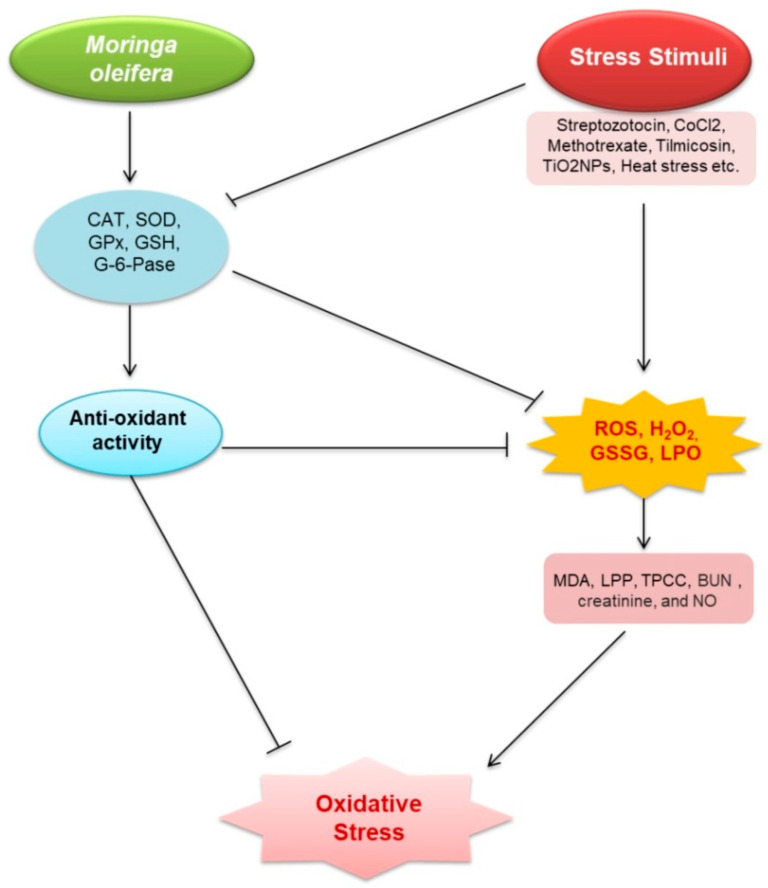Figure 2.
Renoprotective effects of M. oleifera against oxidative stress. Stress stimuli (streptozotocin, CoCl2, methotrexate, tilmicosin, TiO2NPs, acetaminophen (APAP), glycerol, and Salmonella) increased malondialdehyde (MDA), lipid peroxidation products (LPP), total protein carbonyl content (TPCC), blood urea nitrogen (BUN), creatinine, and nitric oxide (NO) production via triggering reactive oxygen species (ROS), H2O2, glutathione disulfide (GSSG), and lactoperoxidase (LPO). Oxidative stress emerged as a result of these events. MO—induced models, on the other hand, increased the expression of catalase (CAT); superoxide dismutase (SOD); glutathione peroxidase (GPx); glutathione (GSH), total antioxidant capacity (TAC); delta-amino levulinic acid dehydratase (ALAD), and G-6-Pase, which then activates glutathione (GSH). These stressors inhibit the expression of oxidative stress suppressive factors. ROS, H2O2, GSSG, and LPO, all related to oxidative stress, were decreased by GSH. GSH is also capable of reducing oxidative stress.

